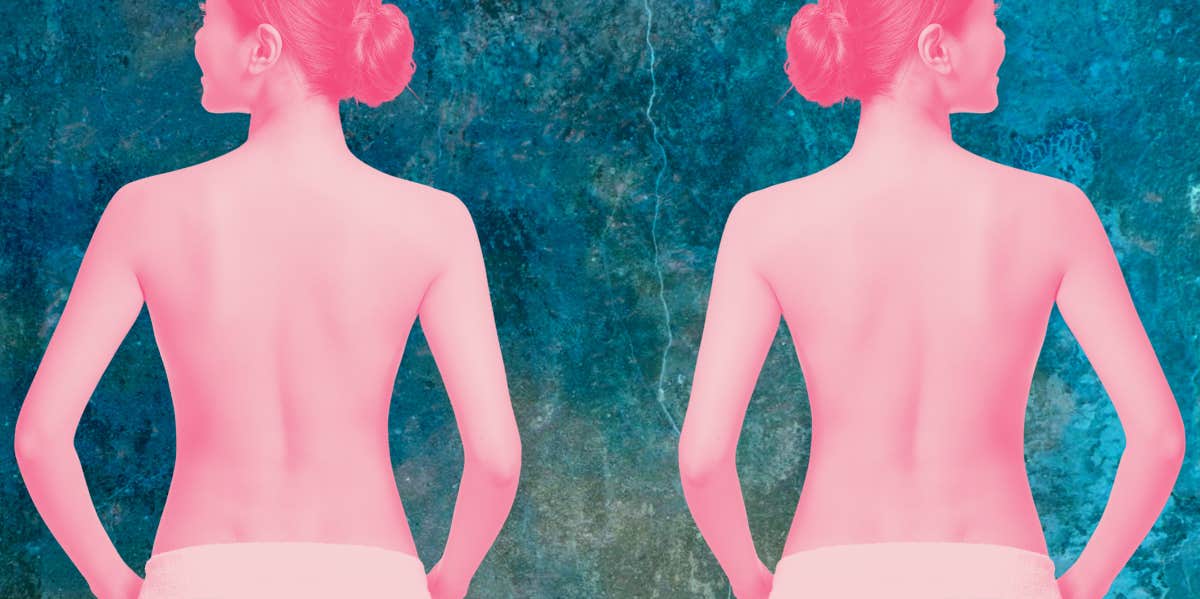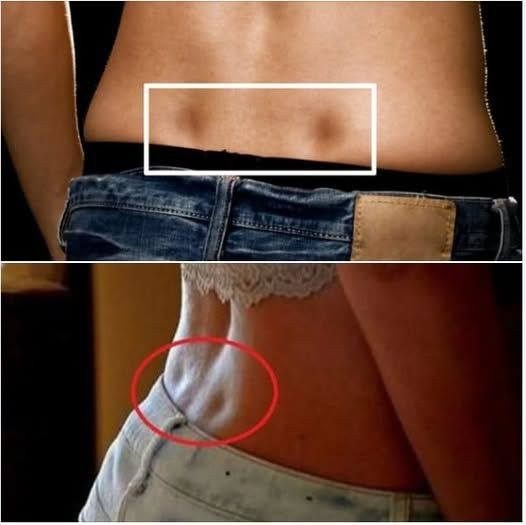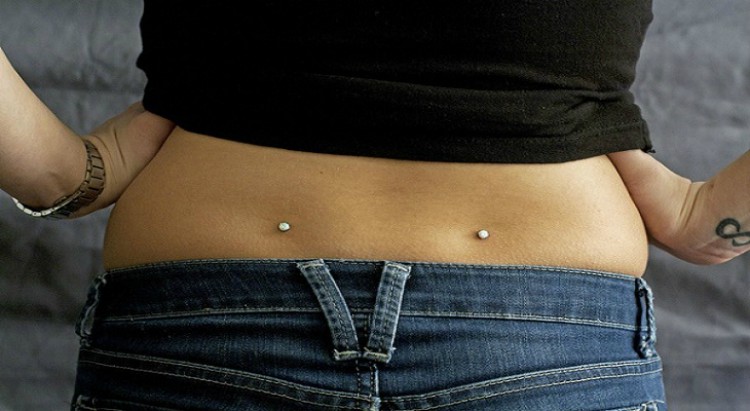Have you ever noticed two small indentations on your lower back, just above the buttocks? These small, symmetrical hollows are commonly known as lower back dimples, or more specifically, “dimples of Venus” in women and “Apollo holes” in men.
While these subtle indentations may be associated with beauty or physical fitness in popular culture, what do they really mean? Are they medically significant? Can they tell you anything about your health?
This article explores the anatomy behind these lower back dimples, their origin, and what science actually says about them—free from myths and speculation.
What Are Lower Back Dimples?
Lower back dimples are small indentations located near the lower part of the spine, usually on either side of the sacroiliac joint. These dimples are not medical conditions but rather natural variations in anatomy. They are typically caused by the structure of the posterior superior iliac spine (PSIS), which is part of the pelvic bone.
In simple terms, these dimples occur where skin and ligament tissue are drawn inward due to the underlying bone structure. They are most visible in individuals with low body fat and well-defined musculature in the lower back and pelvic region.
Why Are They Called “Dimples of Venus”?

The name “Dimples of Venus” is a nod to Venus, the Roman goddess of love, beauty, and fertility. These dimples have been romanticized in literature and visual art for centuries as features of physical allure, especially among women.
In contrast, when they appear on men, they are sometimes referred to as “Apollo holes,” named after Apollo, the Greek god associated with strength and youthful beauty.
Though these names are based on mythological references, they have no bearing on medical or scientific classifications.
Are Venus Dimples Common?
Yes, but their visibility depends largely on body composition and genetics. Not everyone has prominent lower back dimples, and that’s perfectly normal. These anatomical features are:
-
Not related to health conditions
-
Not signs of illness or risk
-
Not something that can be created or removed intentionally
Contrary to some online myths, Venus dimples cannot be “trained” into appearance through exercise, nor are they a sign of superior health or sexual capability. They are either naturally present due to bone structure and connective tissue or they are not.
The Anatomy Behind the Dimples
The small depressions occur where the skin is drawn inwards by the short ligaments connecting the skin to the posterior superior iliac spine, part of the pelvic bone. In individuals with:
-
Low subcutaneous fat,
-
Prominent pelvic bone structure,
-
Strong underlying muscle tone,
…these indentations may appear more visibly. This is why athletes, dancers, or individuals with lean physiques may show more defined lower back dimples.
Do Lower Back Dimples Indicate Good Health?
There is no scientific evidence linking the presence of lower back dimples to health status, fertility, or sexual performance. While it’s true that visible dimples may correlate with lower body fat percentage, they should not be used as a marker for overall health.
Some articles and viral posts online suggest that people with these dimples experience better blood flow or enhanced physical function. However, such claims lack support from peer-reviewed medical research.
In reality:
-
Lower back dimples are anatomical features, not diagnostic indicators.
-
They do not impact bodily functions like fertility, metabolism, or circulation.
-
Their appearance varies greatly depending on genetics and body composition.
Are There Any Medical Concerns Related to Lower Back Dimples?

In almost all cases, lower back dimples are completely harmless. They are not associated with any diseases or medical conditions.
It’s important to not confuse Venus or Apollo dimples with sacral dimples, which are located closer to the buttock crease or spine and are sometimes seen in infants. Sacral dimples can, in rare cases, be linked to spinal abnormalities and may require medical assessment.
However, classic Venus dimples are superficial and anatomical, and not associated with any spinal or muscular conditions.
Can You Get Lower Back Dimples Through Exercise?

Not exactly.
While toning the gluteal and lower back muscles through regular exercise can improve the appearance of the area, the presence of actual dimples is primarily determined by:
-
Your bone structure
-
The position of the posterior superior iliac spine
-
Your connective tissue layout
These features are determined genetically and are not something you can “build” through working out. However, a healthy lifestyle, including proper hydration, balanced nutrition, and physical activity, can improve overall body tone and posture—making dimples (if you have them) more visible.
Are They Considered Attractive?
Beauty is subjective, and while lower back dimples have been historically admired in many cultures, they are simply one of many natural features the human body can express.
Social media may glorify certain physical traits, but it’s important to understand that:
-
Everyone’s body is different
-
Physical beauty takes many forms
-
Dimples, whether on the face, back, or cheeks, are just unique variations, not benchmarks of attractiveness
Myths and Misconceptions
Let’s address a few common myths about Venus dimples:
| Claim | Fact |
|---|---|
| Venus dimples mean you’re healthier | ❌ False — there is no scientific evidence supporting this |
| They improve sexual experience | ❌ No peer-reviewed research confirms this claim |
| You can create them through exercise | ❌ False — they are genetically determined |
| They are signs of high fertility | ❌ No clinical link between dimples and fertility has been established |
Final Thoughts: Celebrate Your Body—Dimples or Not
Whether or not you have visible lower back dimples, remember that they are just one small feature in a complex, beautiful human body. They neither define your health nor determine your attractiveness.
Instead of focusing on physical traits that are largely out of your control, consider prioritizing:
-
A balanced diet
-
Regular movement
-
Mental well-being
-
Positive body image
Bodies are as unique as fingerprints. What matters most is how you treat yours—inside and out.

